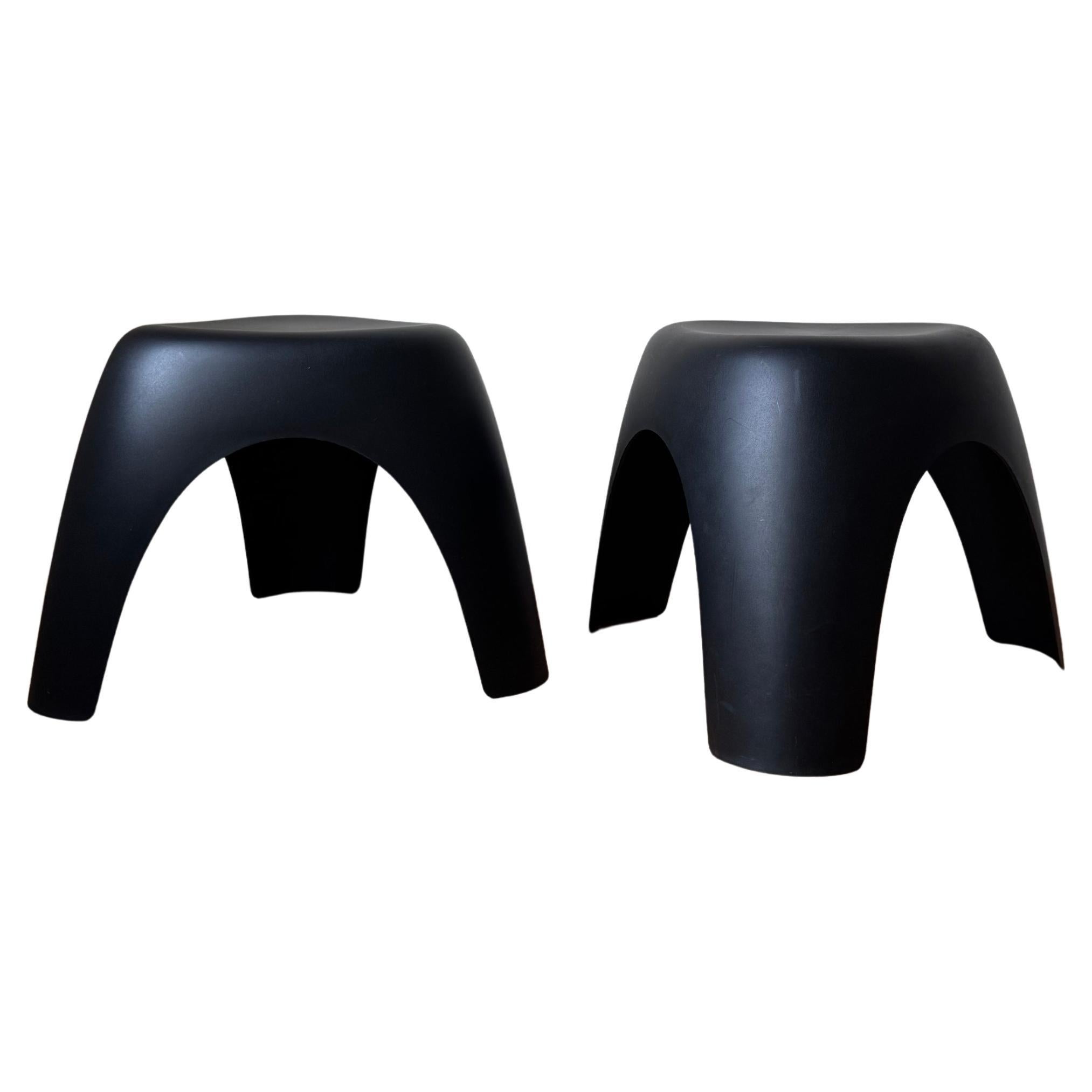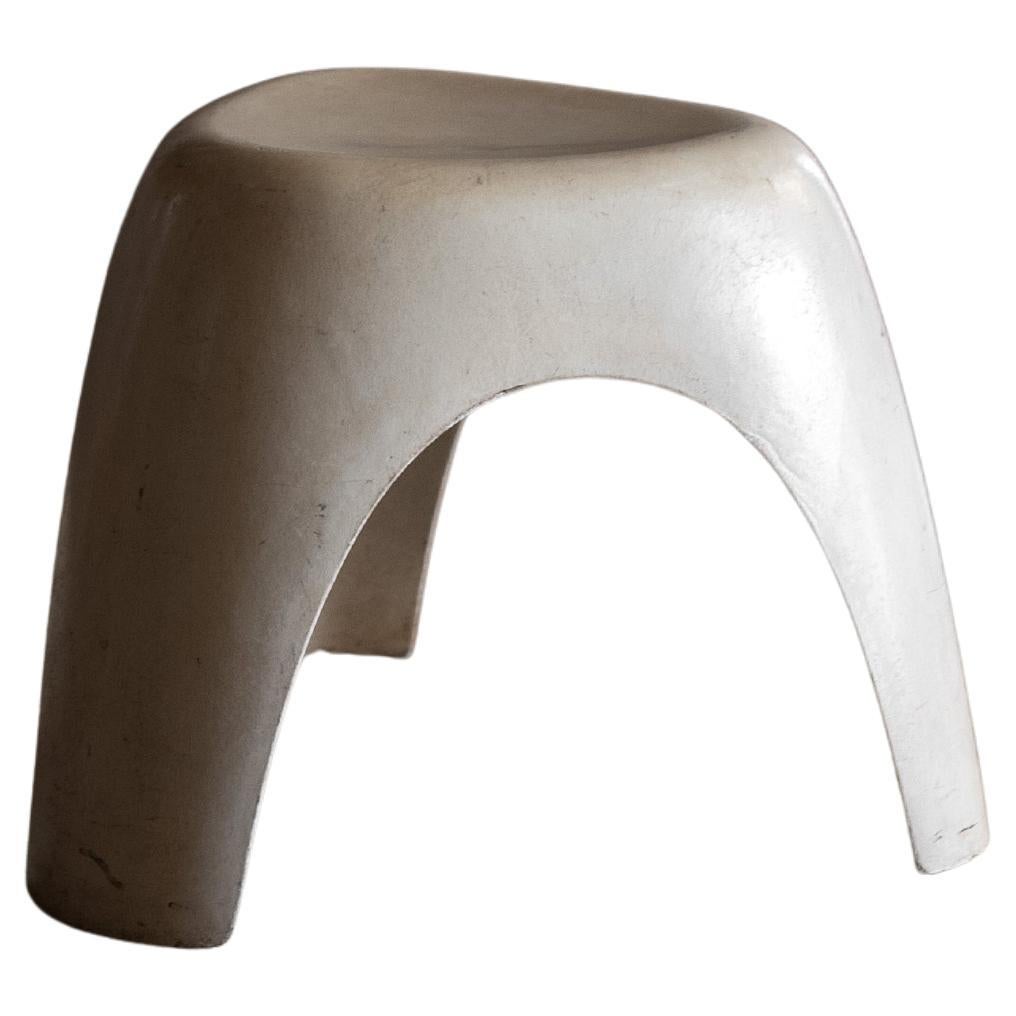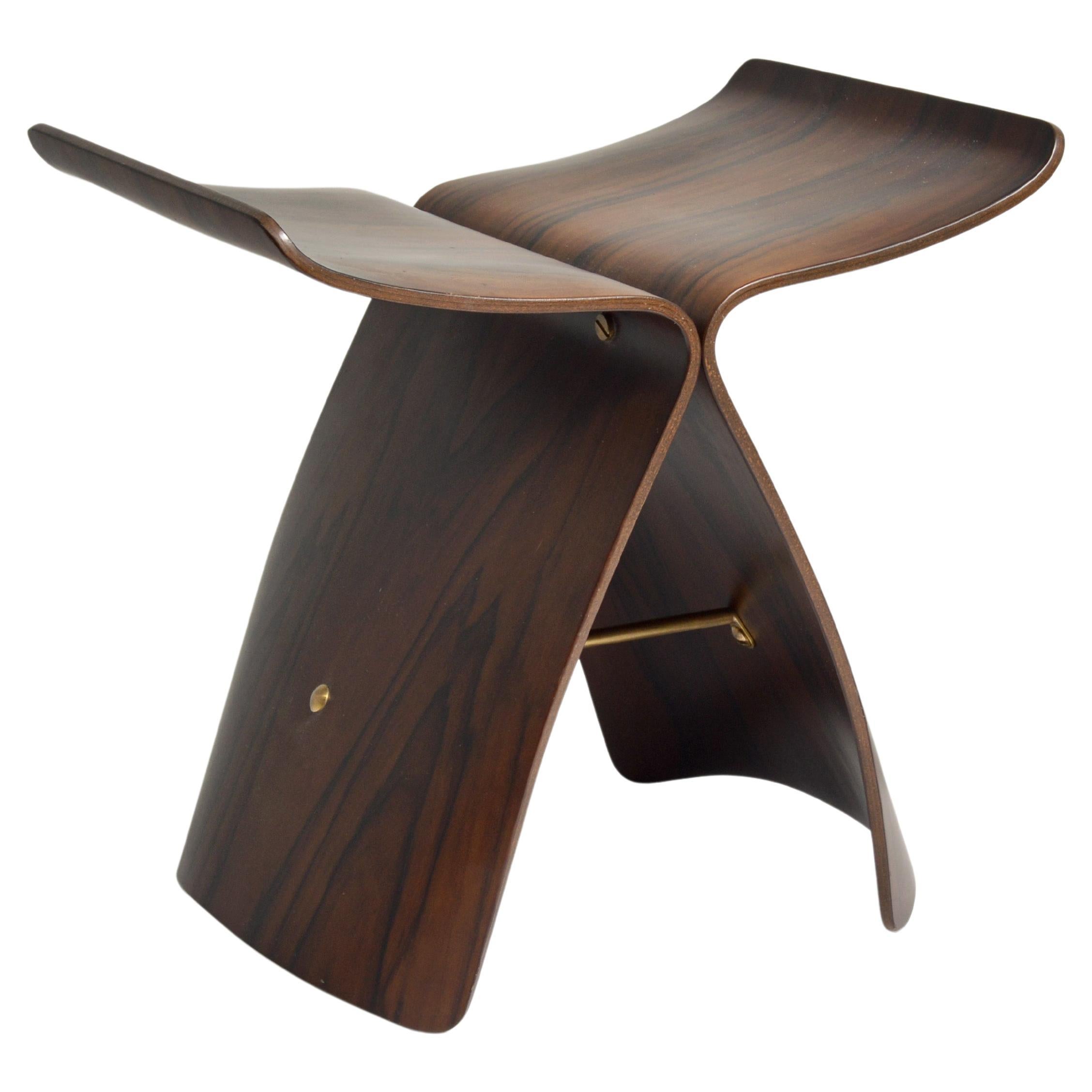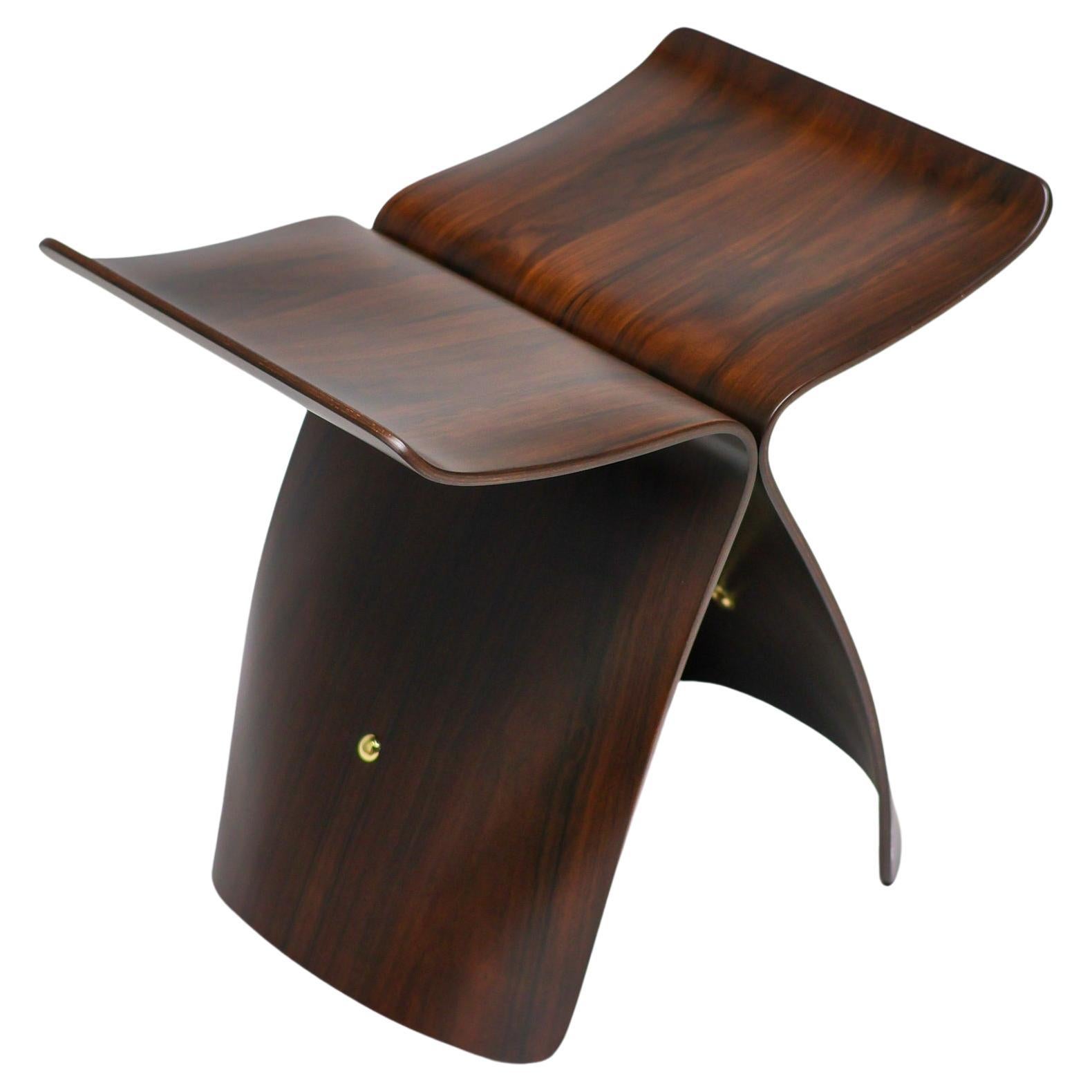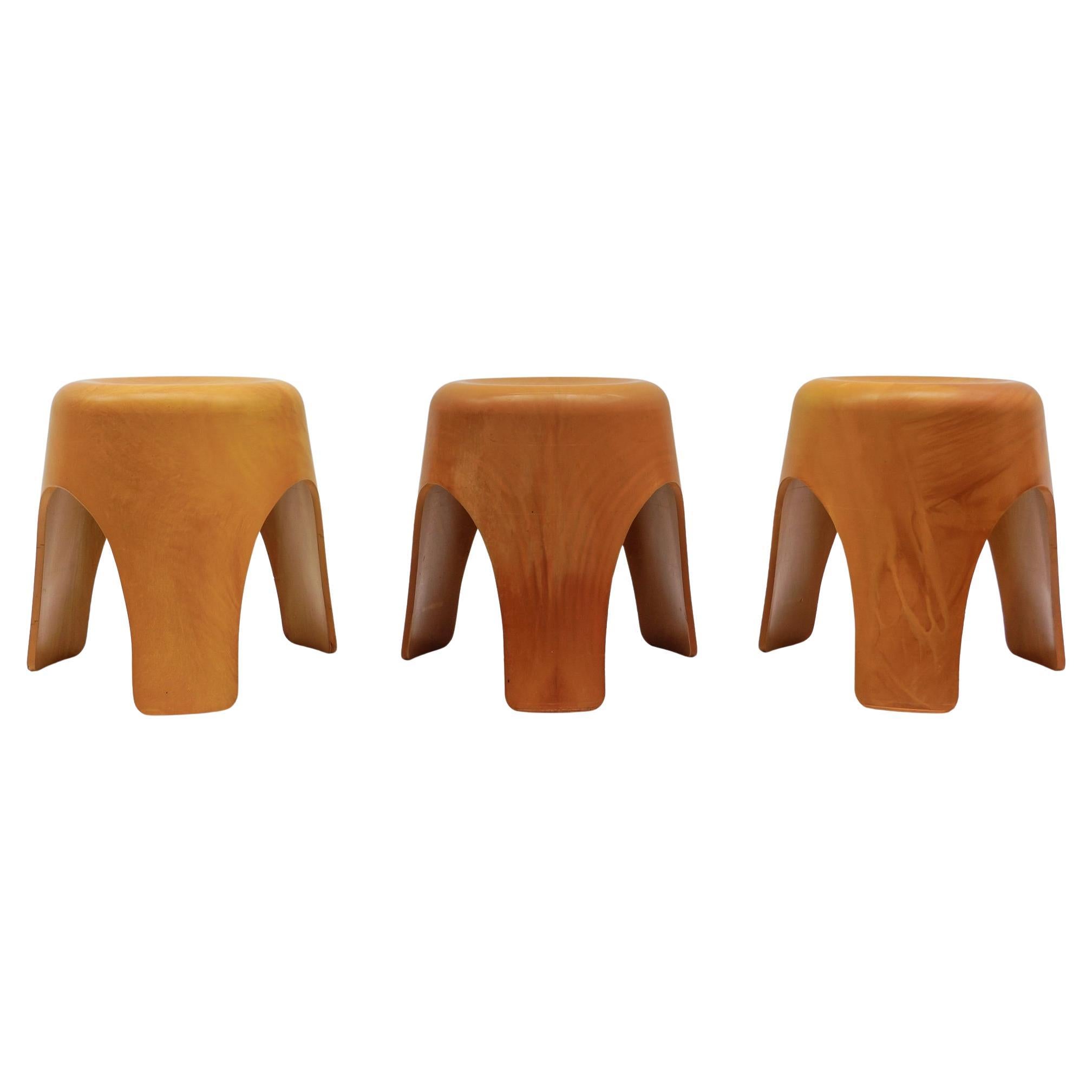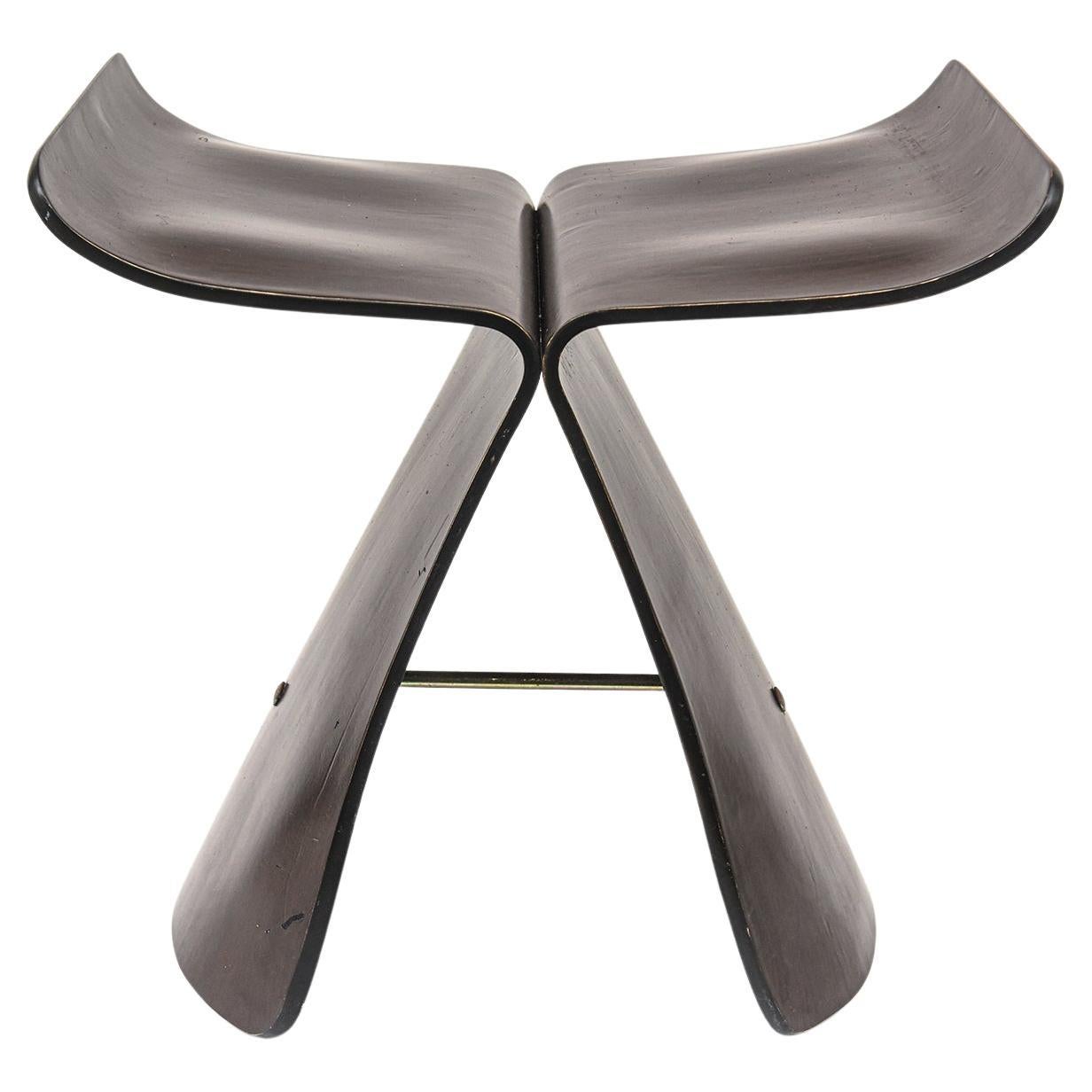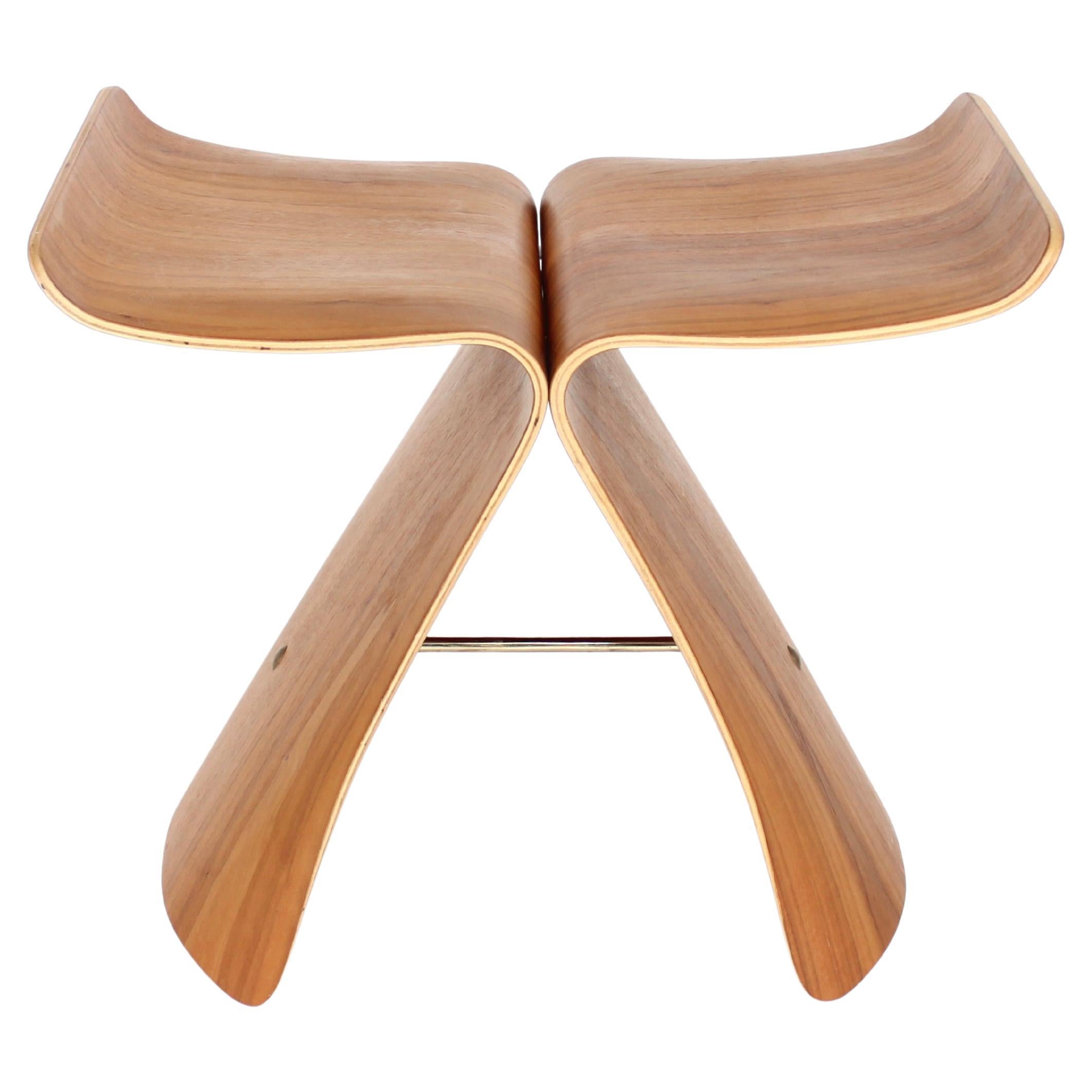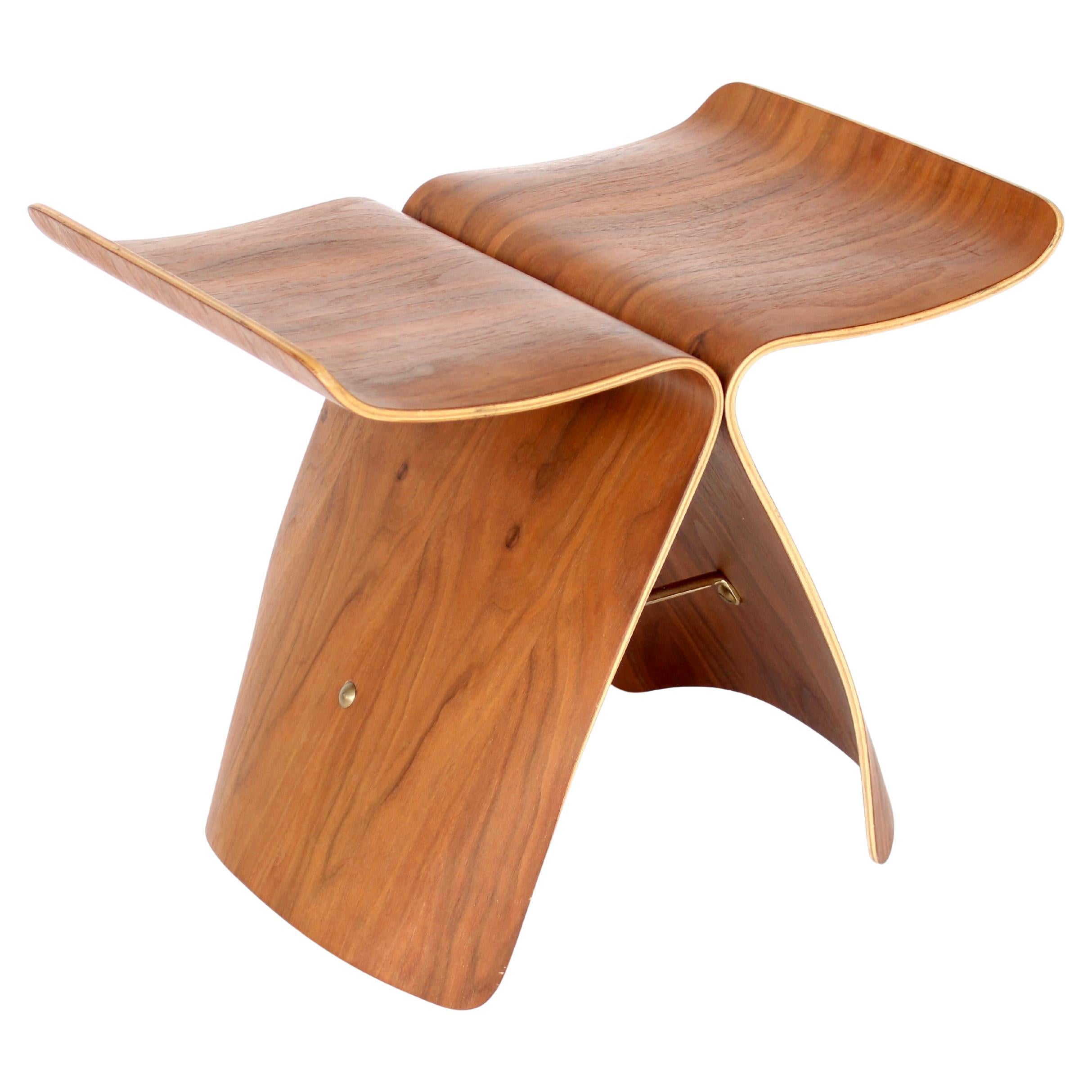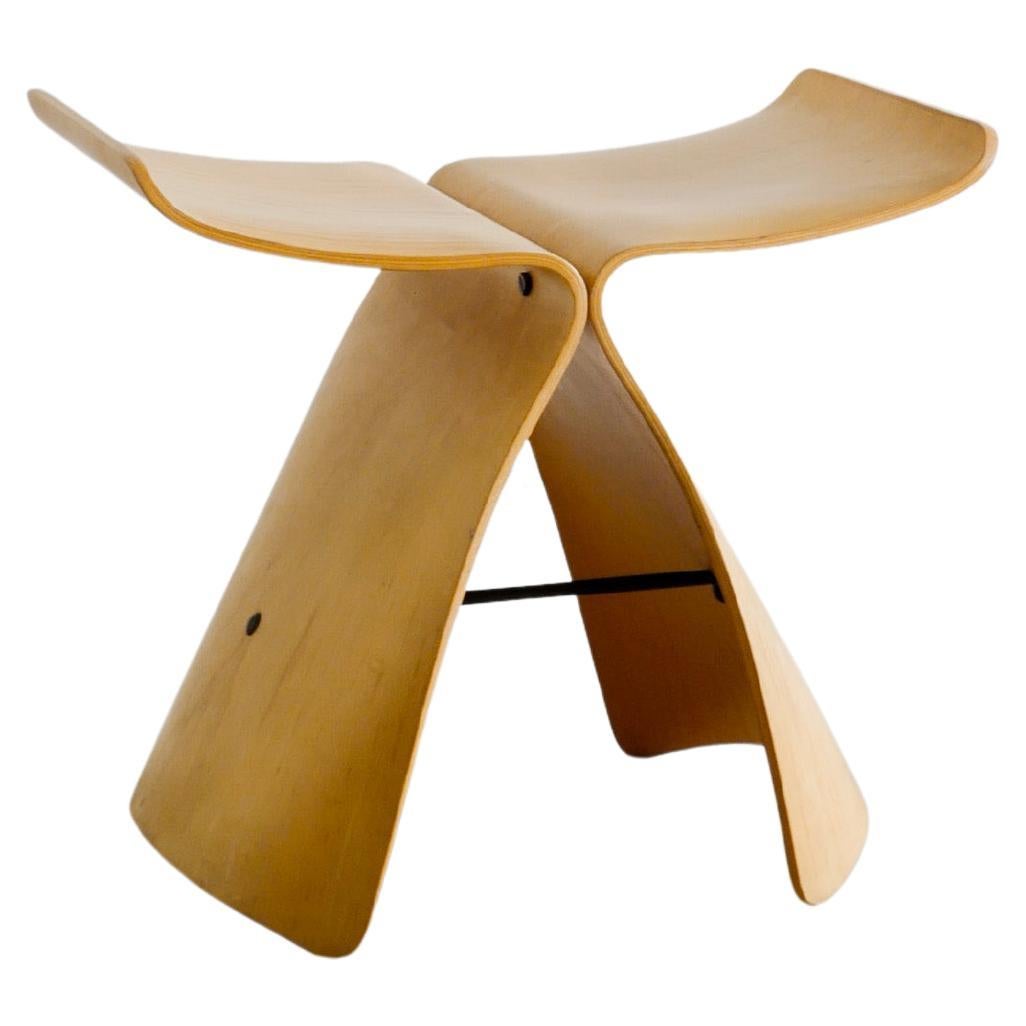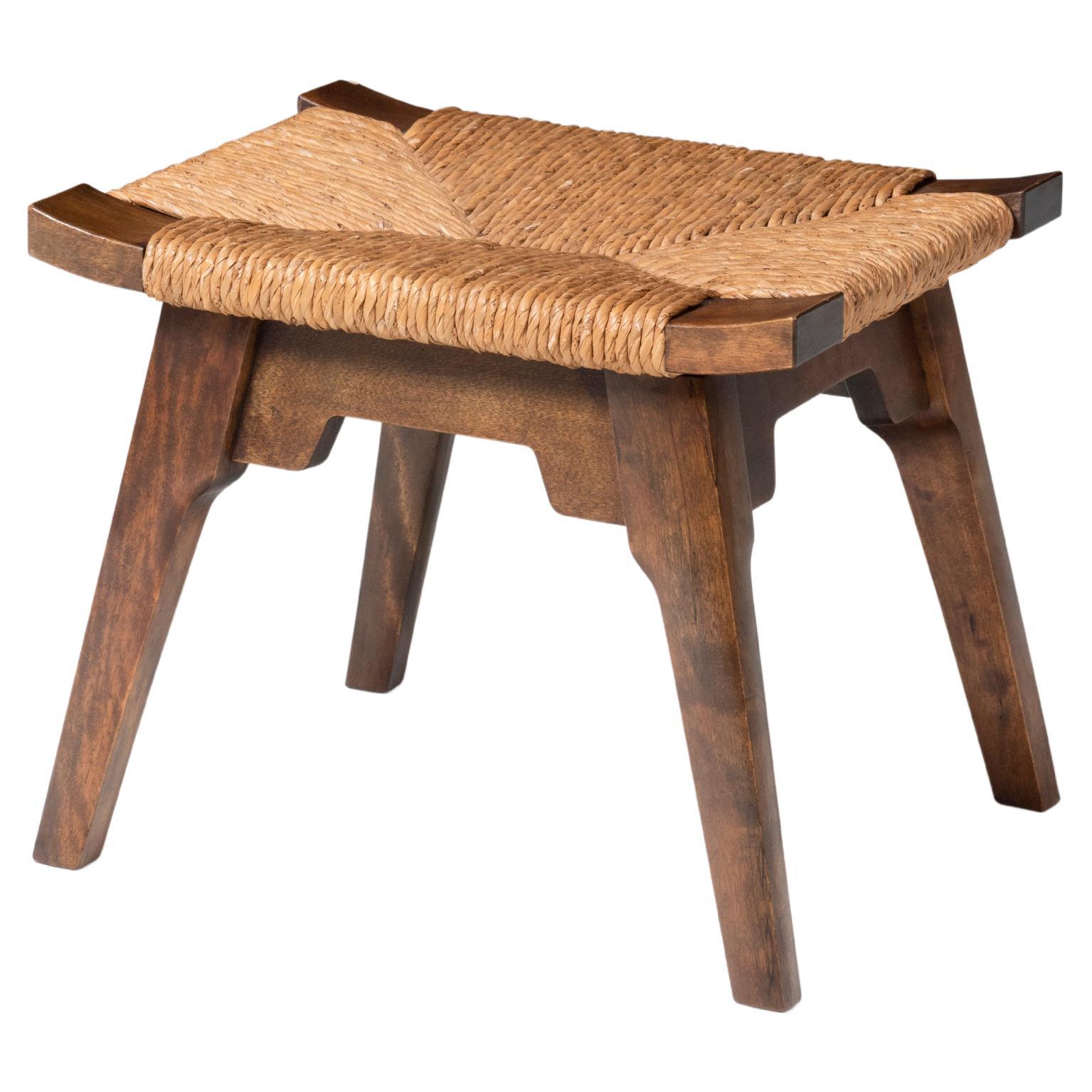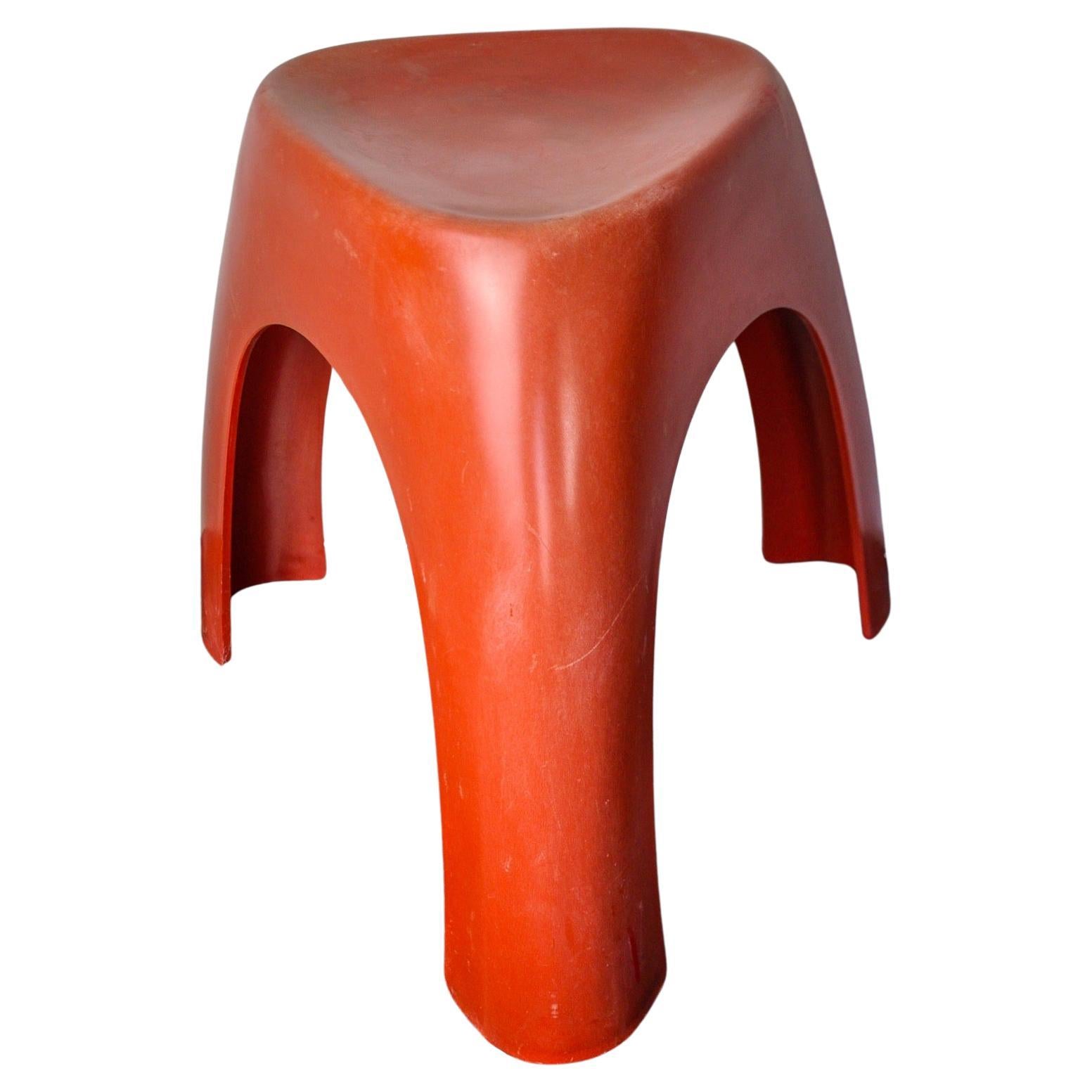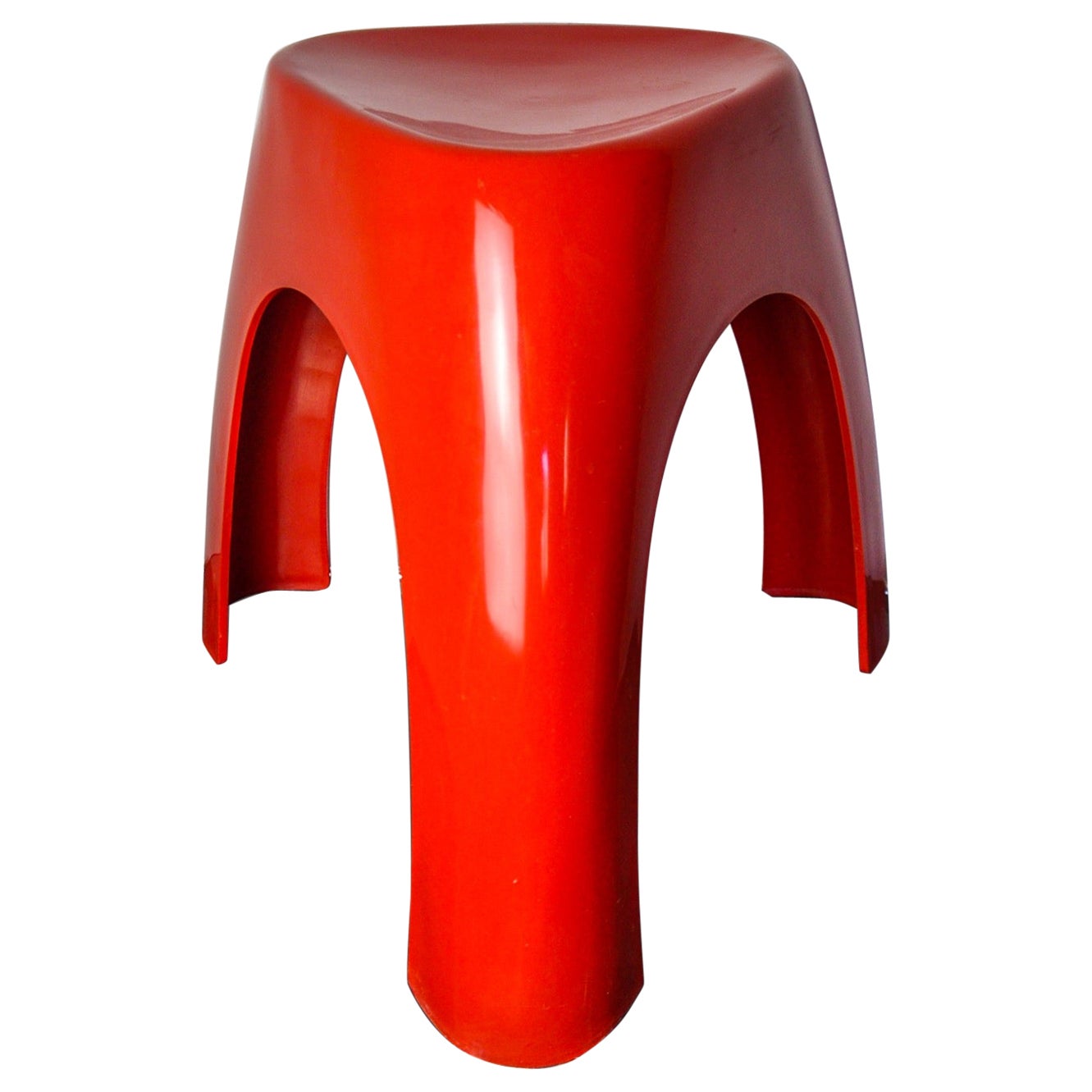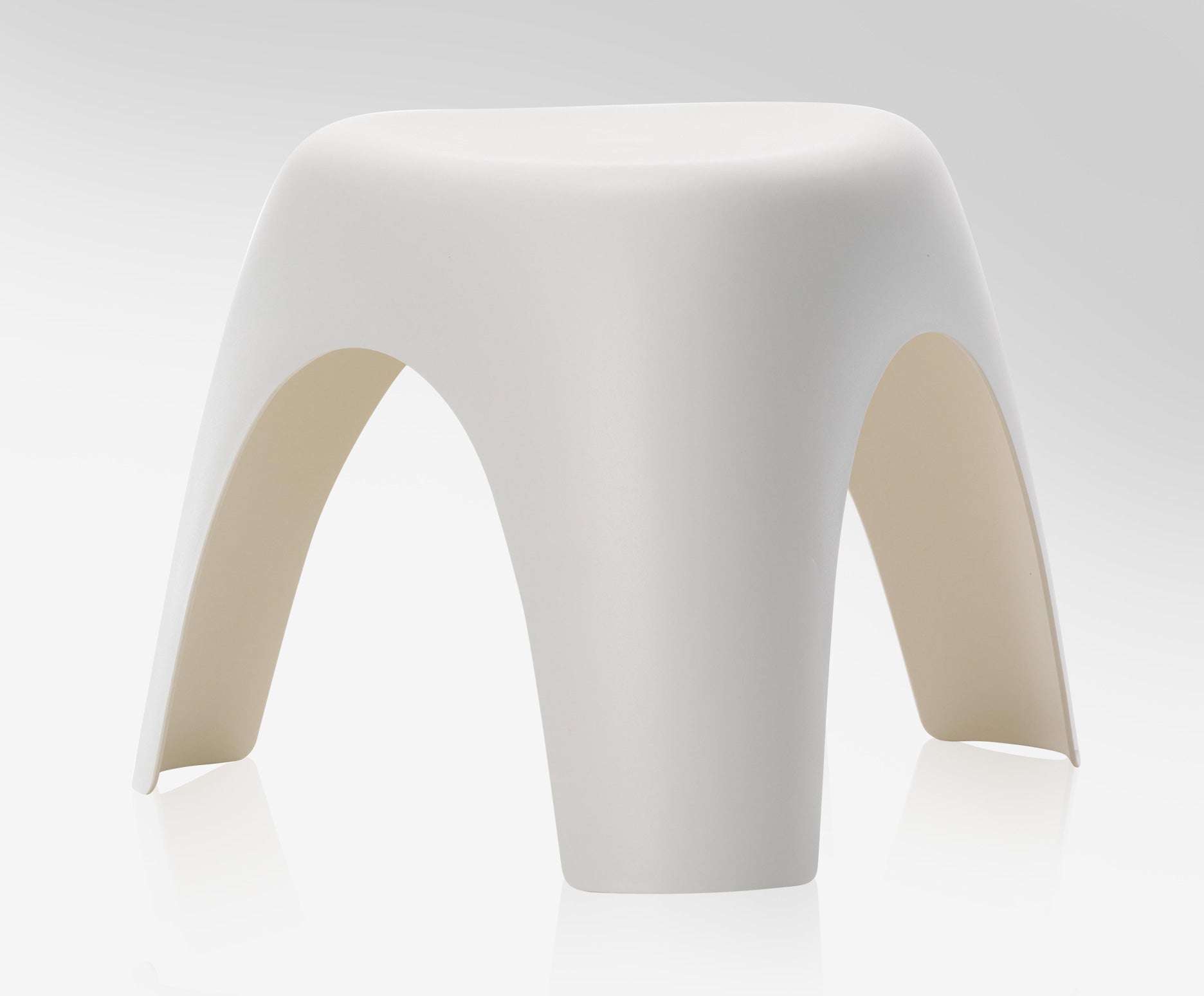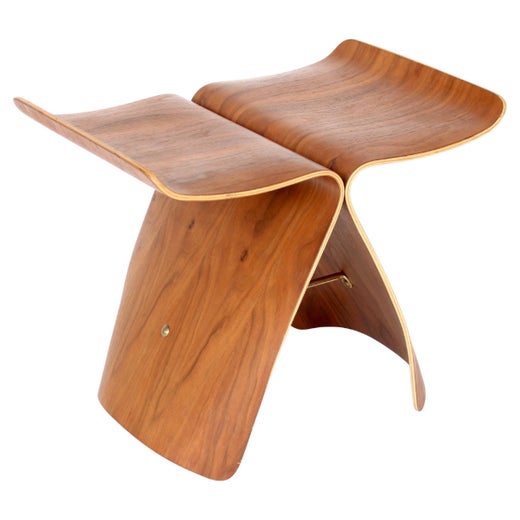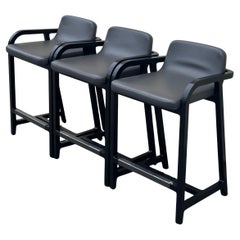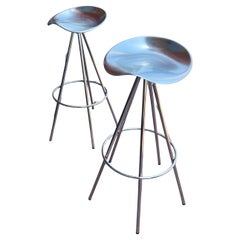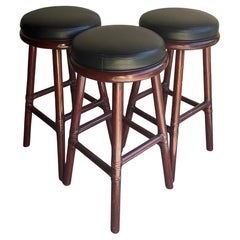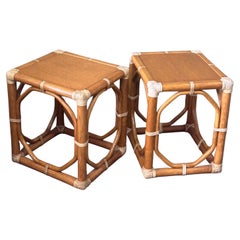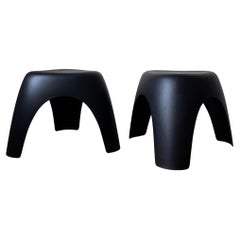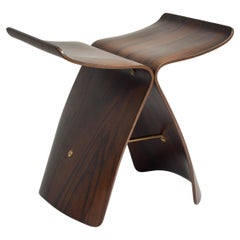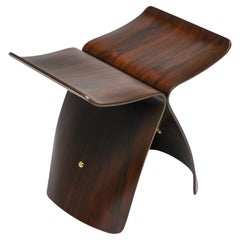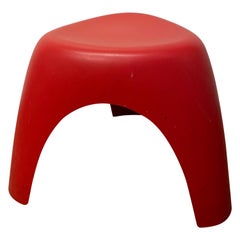
Elephant Stool by Sori Yanagi for Vitra
View Similar Items
Elephant Stool by Sori Yanagi for Vitra
About the Item
- Creator:Sori Yanagi (Designer)
- Design:
- Dimensions:Height: 14 in (35.56 cm)Diameter: 22 in (55.88 cm)Seat Height: 14 in (35.56 cm)
- Style:Organic Modern (Of the Period)
- Materials and Techniques:Plastic,Molded
- Place of Origin:
- Period:
- Date of Manufacture:2001
- Condition:Wear consistent with age and use. Minor scratches to the seat, as shown.
- Seller Location:San Diego, CA
- Reference Number:1stDibs: LU936625676092
Elephant Stool
The postwar era in Japan is now considered the origin of the country’s design and manufacturing revolution, and the Elephant stool, designed in 1954 by Sori Yanagi (1915–2011), is one of the most recognizable objects to emerge from it.
The Elephant stool — named for its similarity to the lovable mammal’s chunky feet — is a stackable three-legged plastic stool. Originally produced in fiberglass by Japan's Kotobuki Seating, the Swiss furniture company Vitra now makes the stool in injection-molded plastic, the result of an easy and inexpensive manufacturing process for which Yanagi developed a range of colorways. The piece can be adapted for both indoor and outdoor use and is a favorite for children and nurseries thanks to its charming shape and easy-to-clean material.
Yanagi is well-known for his organic forms, which stem from a postwar nationwide effort on behalf of designers to balance traditional Asian sensibilities with Western modernism and industrial techniques. The Elephant stool’s gently sloping legs and soft dimpled seat evoke the curves favored by other Western furniture makers like Alvar Aalto and Arne Jacobsen, but the simplicity and biomorphic shape have a distinctly Asian — and a distinctly Yanagi — nature.
Yanagi’s now-signature style owes to a wide range of influences. He was born in Tokyo in 1915, and his father, Soetsu Yanagi, founded both the Mingei movement — a Japanese folk art movement that celebrated the beauty of ordinary handcrafted objects — and the Japan Folk Crafts Museum. Sori became director of the museum in 1977. His father’s passion for finding and creating beauty in functional, everyday objects can be seen in Yanagi’s practical but evocative designs for his tea kettles, manhole covers and more. Yanagi studied art and architecture at the Tokyo Art School and cited the work of modernist architect Charles-Édouard "Le Corbusier” Jeanneret as having played a role in his becoming a designer. Yanagi later worked with forward-thinking French designer Charlotte Perriand when she lived in Japan.
In his long career, Yanagi designed hundreds of quotidian objects: His stainless-steel tea kettles are amongst Japan’s all-time best-selling designs, and his dedication to finding elegance in organic forms as seen in the graceful Elephant stool is the reason it remains a timeless artifact and symbol from an important period in design history.
Sori Yanagi
Sōri Yanagi was a Japanese product designer. Born in 1915 in Tokyo, Japan. His father was Yanagi Sōetsu, founder of the Japanese folk crafts mingei movement, which celebrated the beauty of everyday objects, and the Japanese Folk Crafts Museum (Nihon Mingeikan). Yanagi entered Tokyo Art School in 1934, where he studied both art and architecture. He played a role in the Japanese modern design developed after the Second World War to the high-growth period in the Japanese economy. Yanagi was both a representative of the wholly Japanese modern designer and a full-blown Modernist, who merged simplicity and practicality with elements of traditional Japanese crafts. He designed the official torch for the 1972 Winter Olympics in Sapporo, Japan. Yanagi died in 2011 at the age of 96.
More From This Seller
View All21st Century and Contemporary Italian Modern Stools
Leather
21st Century and Contemporary Spanish Post-Modern Stools
Chrome
Late 20th Century American Organic Modern Stools
Bamboo, Leather
Mid-20th Century American Organic Modern Stools
Leather, Rattan, Oak
Mid-20th Century American Mid-Century Modern Stools
Iron
20th Century Italian Post-Modern Stools
Chrome
You May Also Like
Vintage 1950s Japanese Mid-Century Modern Stools
Plastic
Vintage 1960s Japanese Stools
Fiberglass
Vintage 1960s Stools
Wood
Mid-20th Century Japanese Mid-Century Modern Stools
Brass
Vintage 1950s Mid-Century Modern Stools
Plastic
Vintage 1960s Japanese Mid-Century Modern Footstools
Brass
